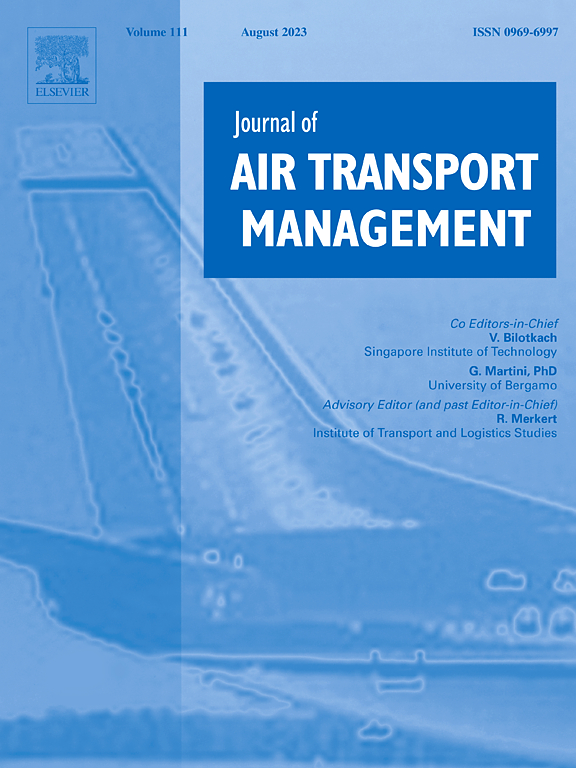Addressing the impact of airport pricing, investment and operations on greenhouse gas emissions
IF 3.9
2区 工程技术
Q2 TRANSPORTATION
引用次数: 0
Abstract
The discussion of mitigating climate change has turned towards airports, which are a key element in the overall air transport industry. The paper analyses how measures at the airport level can help to directly or indirectly reduce emissions from the air transport sector. This topic is of relevance because, by now, external costs of the sector are internalised only partially. We distinguish between non-aviation and aviation emissions as well as those from airport access and egress. In addition, airports are regarded as a node by policymakers to reduce emissions. While a reduction of non-aviation emissions is straightforward and also attempted by many airports, the reduction in aviation emissions is mainly controlled by the airlines themselves and airports only have an indirect effect. Applying microeconomics, we analyse how operational factors, pricing and slot regimes can affect output and emissions. In the short run, with busy airports, differentiated charges might only lead to reduced emissions in the US, as the slot systems ration demand well. In the long run new capacity must be assessed by Cost Benefit Analysis with pricing of local and global environmental externalities. While full internalisation of external costs is, in principle, possible it has yet to be achieved. This means that there is a significant task to assess the emissions at airport with a view to enabling stronger policies to reduce emissions.
应对机场定价、投资和运营对温室气体排放的影响
关于减缓气候变化的讨论已转向机场,因为机场是整个航空运输业的关键因素。本文分析了机场层面的措施如何有助于直接或间接减少航空运输业的排放。这一主题具有现实意义,因为到目前为止,航空运输业的外部成本仅部分被内部化。我们将非航空排放和航空排放以及机场进出港排放区分开来。此外,机场被决策者视为减排的节点。虽然减少非航空排放是直接的,许多机场也在尝试,但减少航空排放主要由航空公司自己控制,机场只有间接影响。我们运用微观经济学分析了运营因素、定价和航班时刻制度如何影响产出和排放。从短期来看,在机场繁忙的情况下,差异化收费可能只会导致美国的排放量减少,因为航班时刻制度能很好地配比需求。从长远来看,必须通过成本效益分析来评估新的吞吐能力,并对当地和全球环境外部因素进行定价。虽然原则上外部成本完全内部化是可能的,但目前尚未实现。这意味着对机场排放进行评估以制定更有力的减排政策任重而道远。
本文章由计算机程序翻译,如有差异,请以英文原文为准。
求助全文
约1分钟内获得全文
求助全文
来源期刊

Journal of Air Transport Management
TRANSPORTATION-
CiteScore
12.40
自引率
11.70%
发文量
97
期刊介绍:
The Journal of Air Transport Management (JATM) sets out to address, through high quality research articles and authoritative commentary, the major economic, management and policy issues facing the air transport industry today. It offers practitioners and academics an international and dynamic forum for analysis and discussion of these issues, linking research and practice and stimulating interaction between the two. The refereed papers in the journal cover all the major sectors of the industry (airlines, airports, air traffic management) as well as related areas such as tourism management and logistics. Papers are blind reviewed, normally by two referees, chosen for their specialist knowledge. The journal provides independent, original and rigorous analysis in the areas of: • Policy, regulation and law • Strategy • Operations • Marketing • Economics and finance • Sustainability
 求助内容:
求助内容: 应助结果提醒方式:
应助结果提醒方式:


